Mara Hoffman Is Everything Fashion Should Be, Yet It's Still Closing

After 24 years in business, designer Mara Hoffman announced in an Instagram post and coinciding Vogue interview on Sunday, May 19, that her Spring 2024 collection would be her final one. Hoffman had strived to operate sustainably, but the costs of balancing slow, mindful production with scaling an independently owned brand were too incompatible. "[T]he reality is that the demands that are on a small company financially make it almost impossible to be privately held and run after a certain point," she told Vogue.
Within minutes of reading the news, I texted a close friend the link to Hoffman's post and two words: "I'm devastated."
While Hoffman started her colorful resort wear brand in 1999, shortly after she graduated from Parsons, I learned about Hoffman's work in the late 2010s. By the time I saved up to order my first few sustainably sourced linen skirts and viral "popcorn" material dresses, Hoffman had completely reset her business. She pivoted in 2014 to completely rebuild her supply chain, ensuring pieces were Fair Trade certified and eliminating polyester from her designs. In 2018, Hoffman introduced one of the industry's most inclusive size ranges. A majority of each collection was available up to size 3XL.
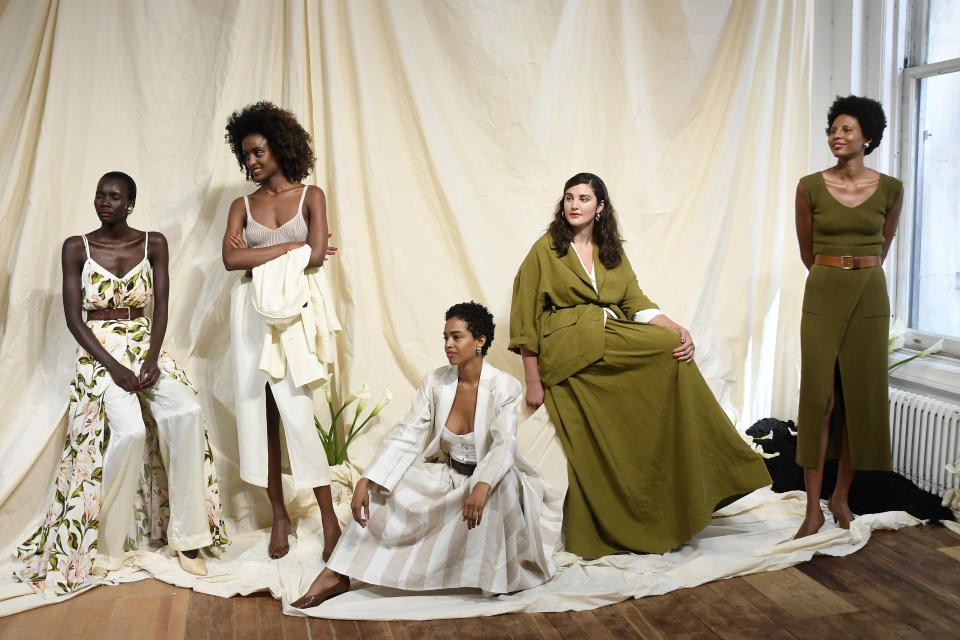
Mara Hoffman won me over because she did two things at once that other corners of the fashion industry would call impossible. She championed sustainability and mindful consumption, but not at the expense of inclusion. The varied range of women who wore her designs—from everyday corporate workers and fashion editors I'd interviewed for styling stories, to celebrities like Beyoncé, Chrissy Teigen, and Issa Rae—prove it.
In comments to Marie Claire, journalists, designers, small business owners, and climate activists all said they would miss Hoffman's work for the same reasons.
"I cherish every single Mara Hoffman piece in my closet and have such fabulous memories in each of them," writer Aminatou Sow says. She describes Hoffman's designs as celebratory yet thoughtful, incorporating discerning texture and volume. "It’s been a pleasure to get a solid education on textile, fashion, and sustainability through buying her clothes."
A post shared by Mara Hoffman ??
A photo posted by marahoffman on
On the sustainability front, Hoffman pushed boundaries with new-to-market materials that performed (and photographed) as luxuriously as synthetics used by other brands. Take a swimwear fabric update she released last year, which substituted nylon and polyester—common in swim— for a water-resistant material made from wood pulp.
Activist, author, and model Cameron Russell calls Hoffman's work "a beacon"; Studio189 designer and co-founder Abrima Erwiah considers Hoffman a "pioneer."
"The loss of the brand is being felt by the whole industry," says Maxine Bédat, founder of the New Standard Institute. "This fact also starkly highlights the very real business challenges that companies trying to do the right thing face. Without common-sense rules in place, it is simply impossible to compete in the marketplace and do the right thing."
Sophia Li, a climate activist and journalist, credits Hoffman with defining "sustainable fashion" before it became a conversation topic in the wider industry zeitgeist. “She not only has been a visionary paving her own path in the space, but she also brought a whole wave of creatives who never felt accepted by 'fashion,'" Li says.
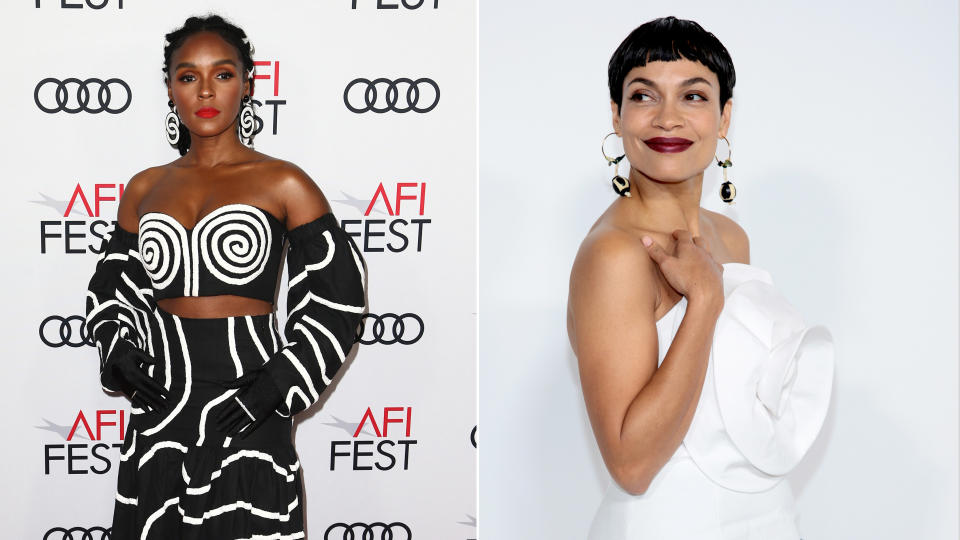
There's a sad irony to Hoffman's brand closure arriving now. Six months ago, she was honored with the CFDA's Fashion Award for Environmental Sustainability. Her pieces are worn in fashion capitals like New York City and by some of the brightest stars in Hollywood. In the comments on her Instagram farewell, hundreds of women from around the world poured out their hearts about how her garments made them feel: "beautiful," "worthy," and "my absolute best."
Hoffman calls the last 24 years of business a "gorgeous run" despite the hardships. By stepping back now, she's still setting an example. Erin Allweiss, co-founder of the communications firm The No.29, says Hoffman is speaking a truth insiders know but don't acknowledge: "[T]he fashion system as we know it isn't working for people or the planet. Only a real artist and truly integrated human being can make the decision to stop."
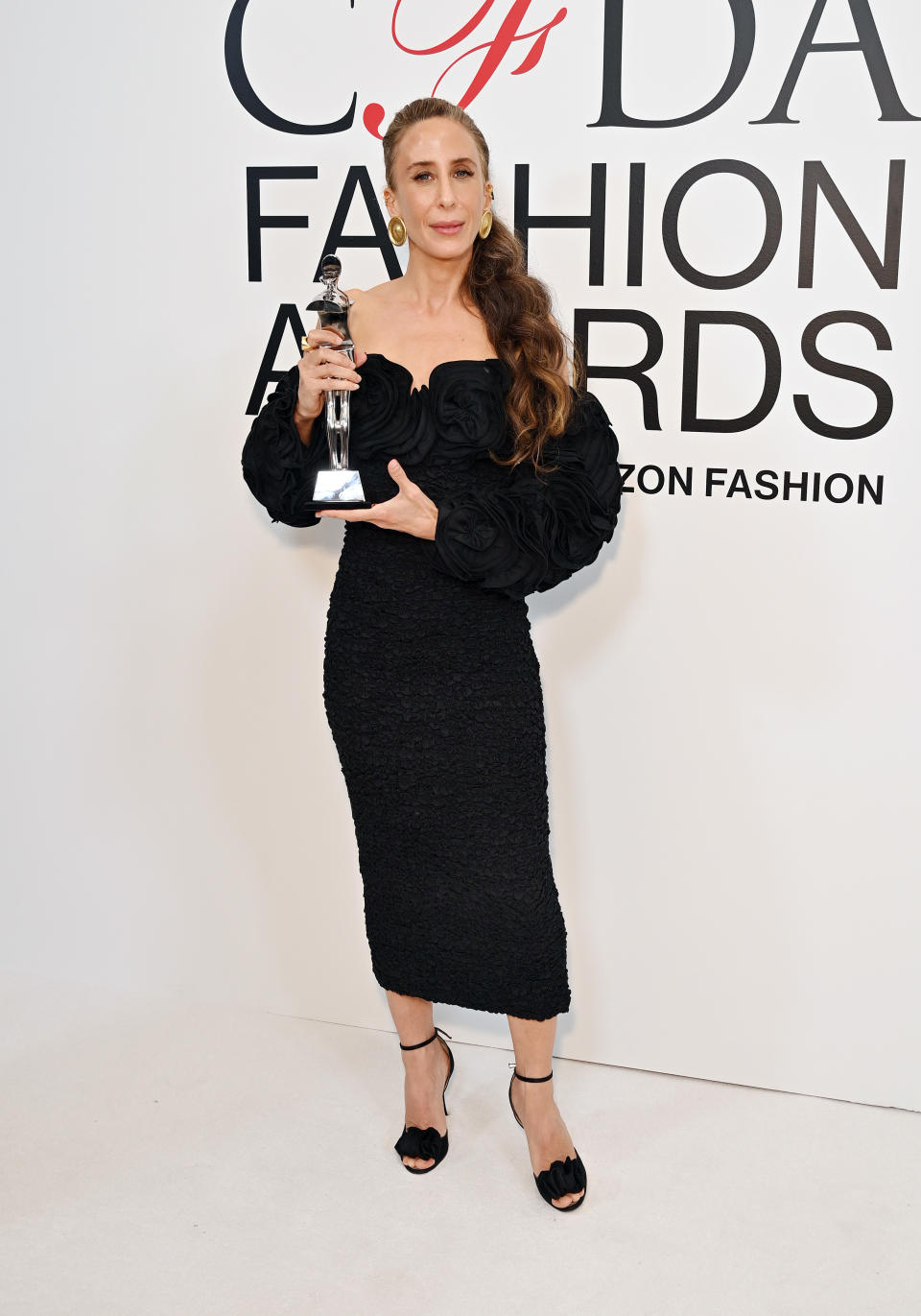
In 2023, I interviewed Hoffman about one of her sustainable textile innovations: a fully recyclable dress created in partnership with the materials company Circ. In hindsight, her reasoning for the dress's limited production run (only 35 were made) seems like a breadcrumb for her eventual decision to stop production on her label entirely. "I think we’re so used to seeing so much," she told me. "The scale at which we’re all experiencing material life—I don’t think we even realize how big it’s become."
Every style expert who shared their thoughts on Hoffman's legacy hoped this brand wouldn't be the last they'd see of her. The designer said her work is "far from done." If Hoffman's individual brand can't remain in business, let's hope the ideas underlying it remain in the conversation. Losing sight of sustainability that can include everyone would be even more devastating.
Shop Mara Hoffman's Final Pieces
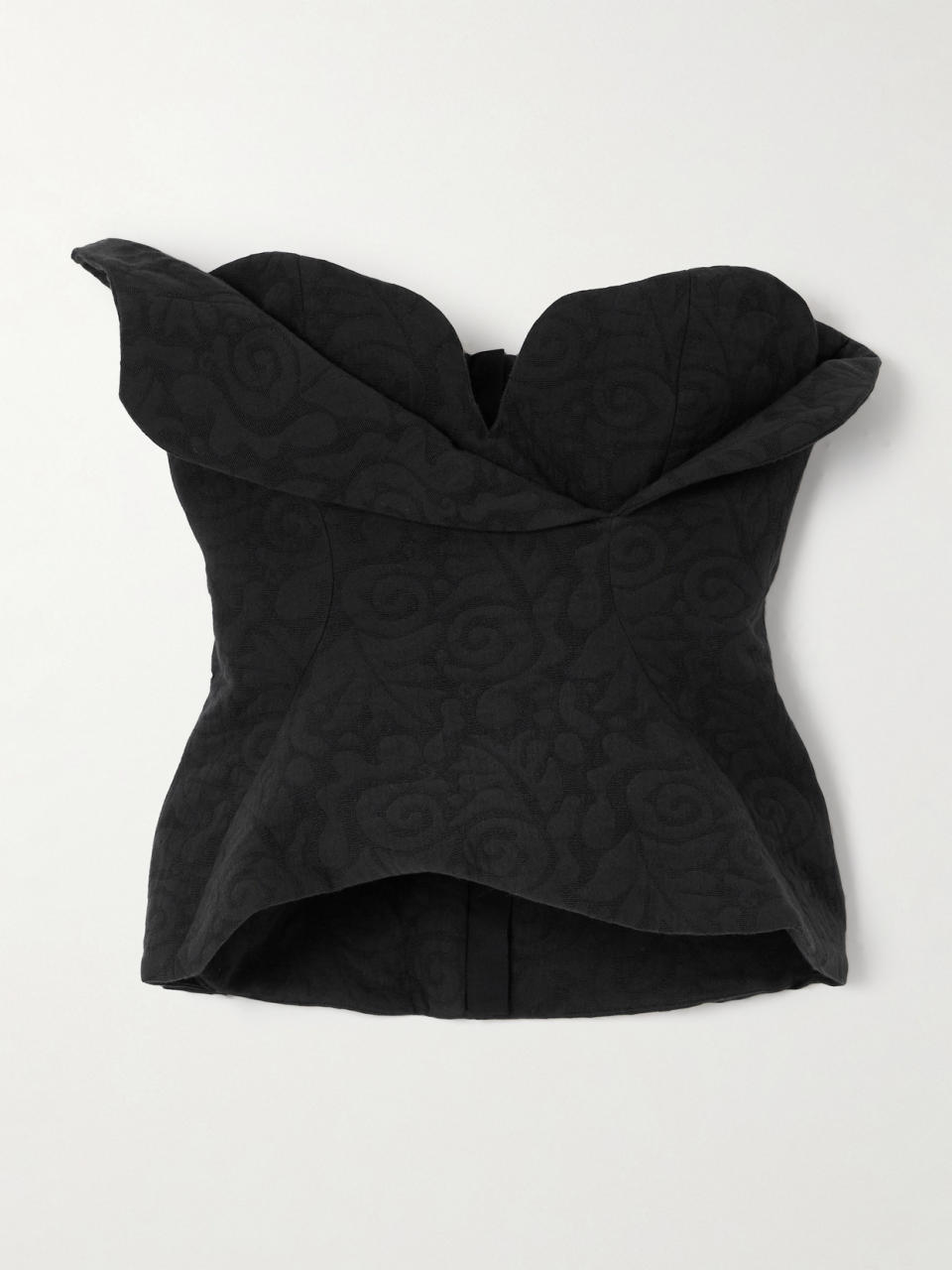
Mara Hoffman Angela Lumaca Strapless Top
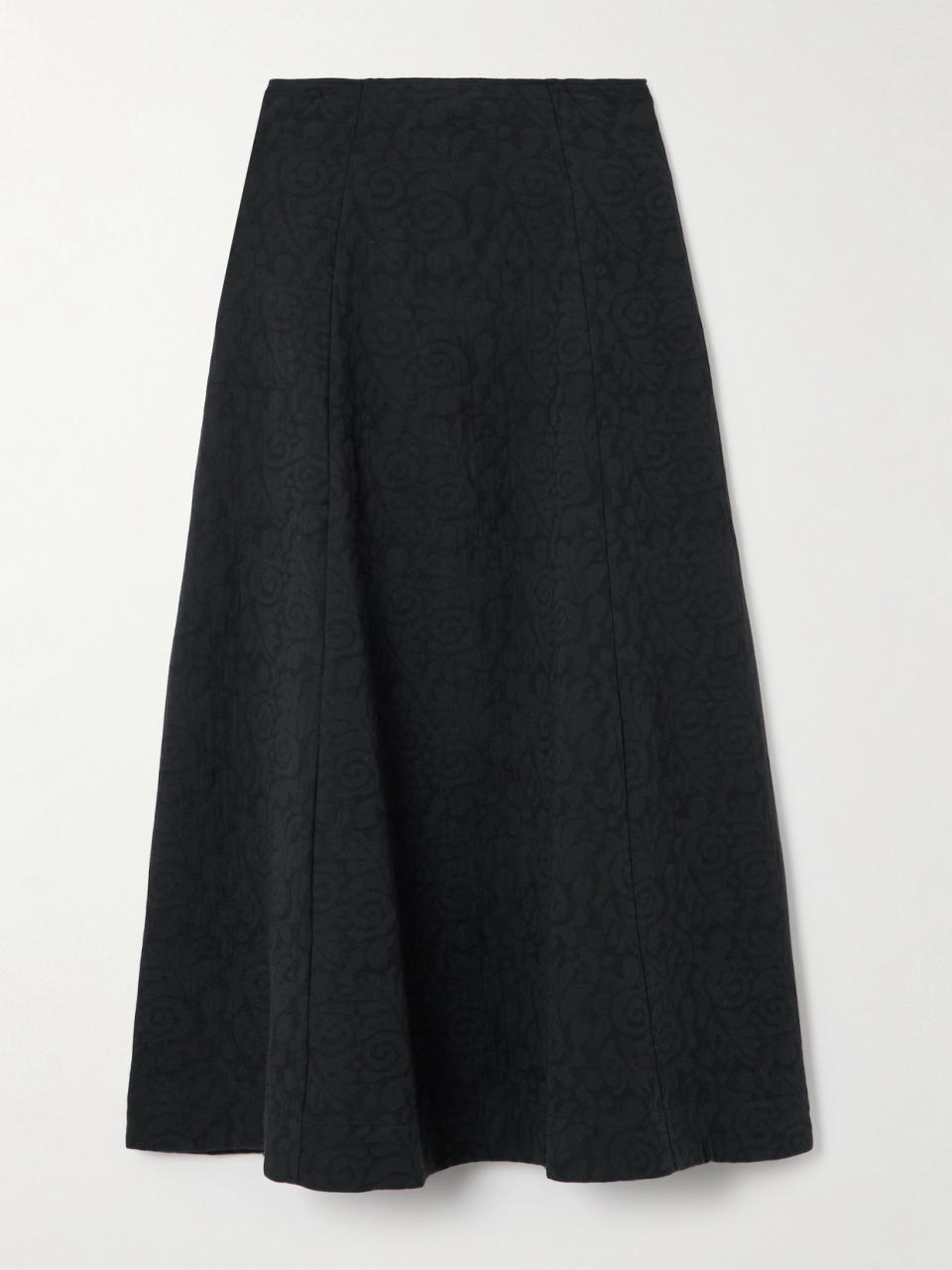
Mara Hoffman Floral Organic Cotton-Jacquard Skirt
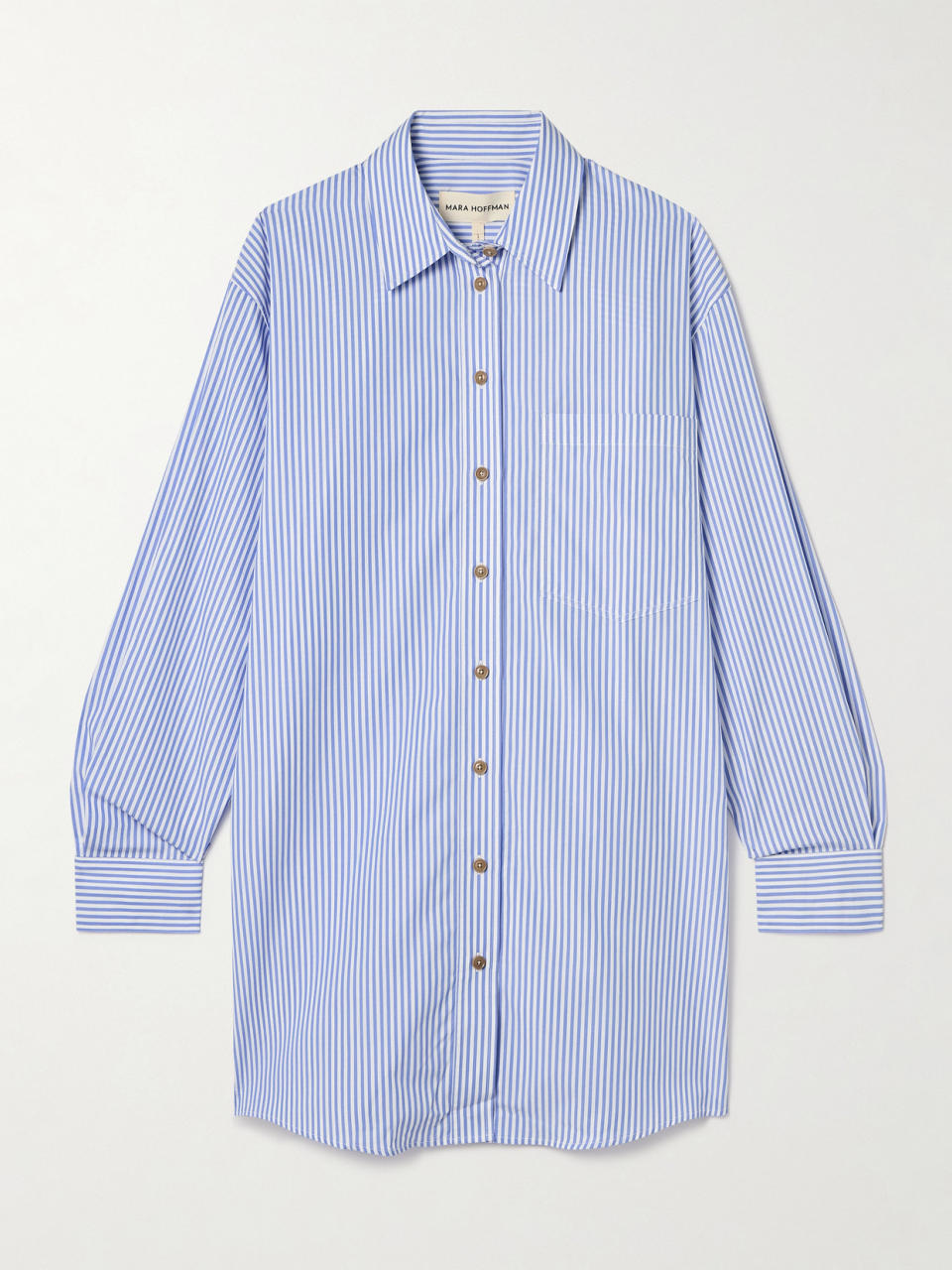
Mara Hoffman Hailey Striped Organic Cotton-Poplin Shirt
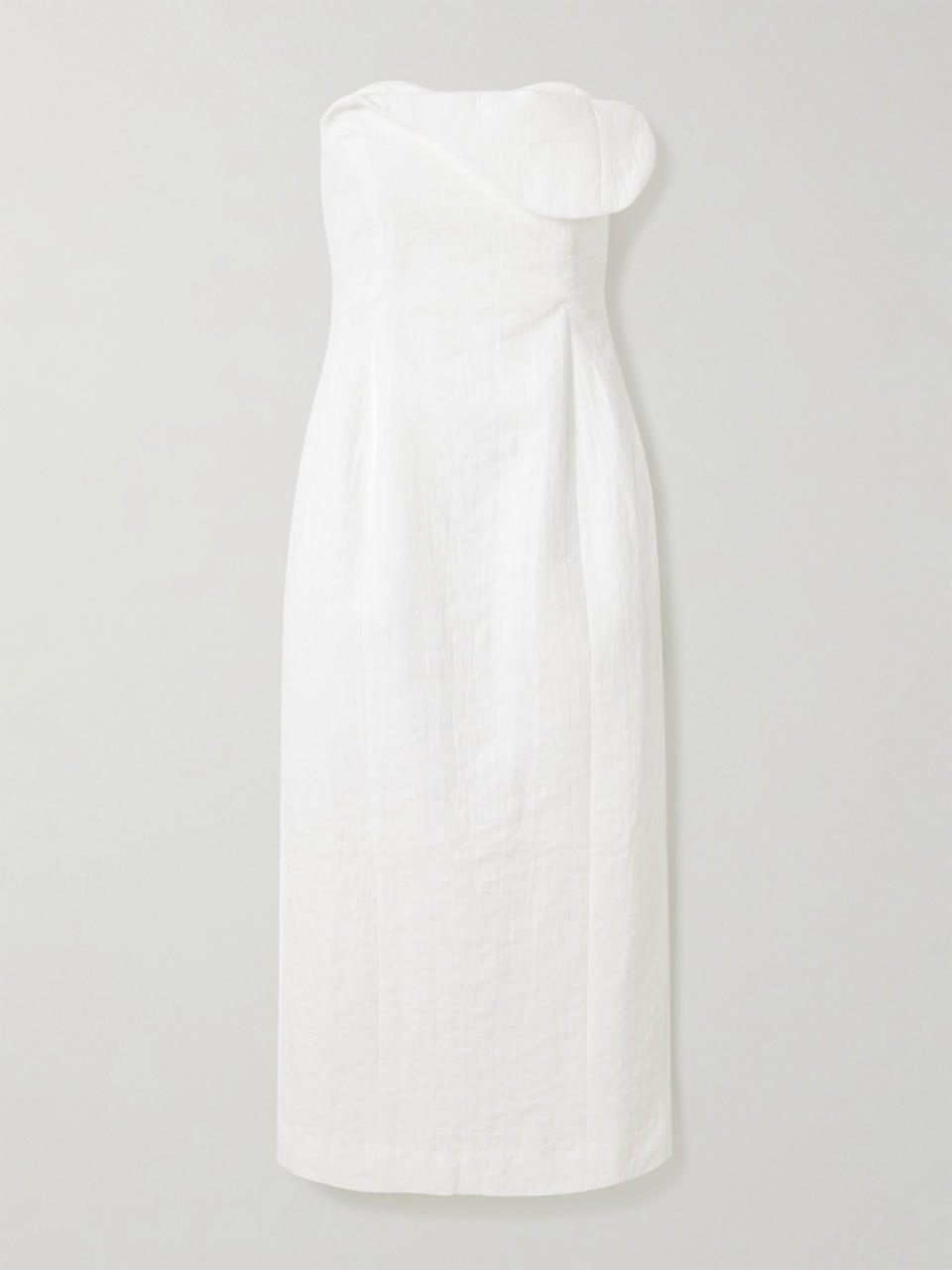
Mara Hoffman Lisha Strapless Midi Dress
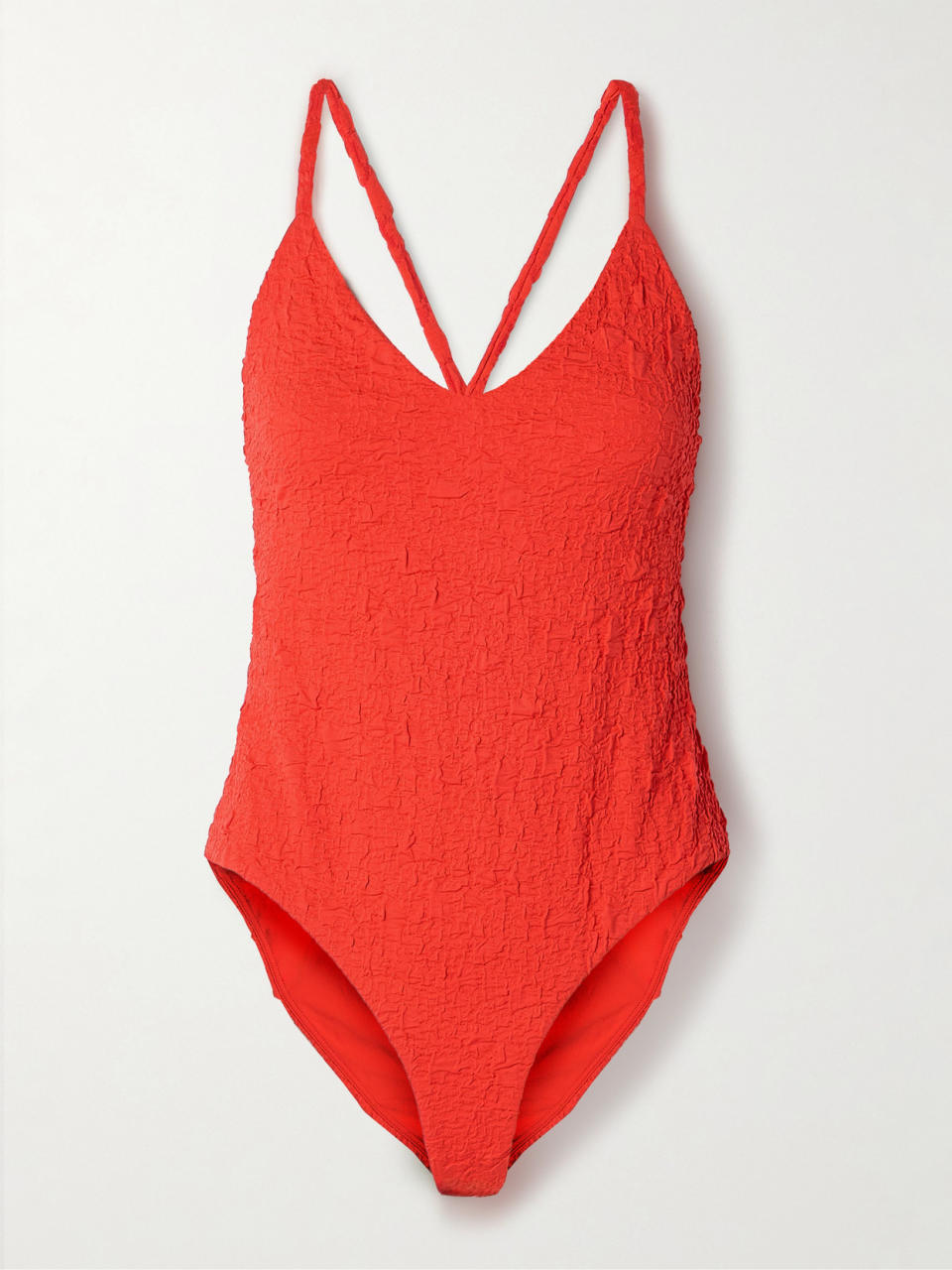
Mara Hoffman Emma Recycled-Popcorn Swimsuit
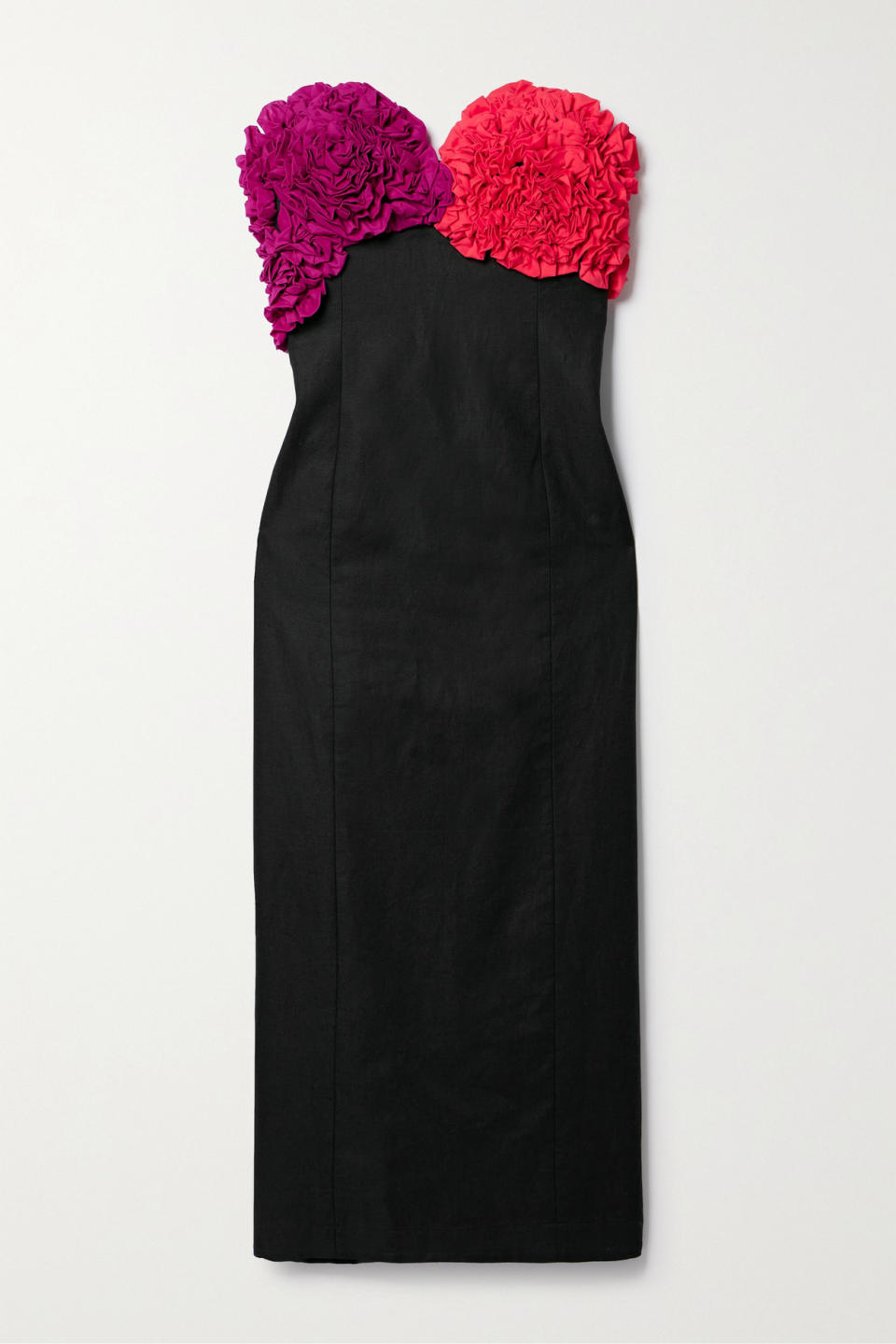
Mara Hoffman Carmen Ruffled Midi Dress
